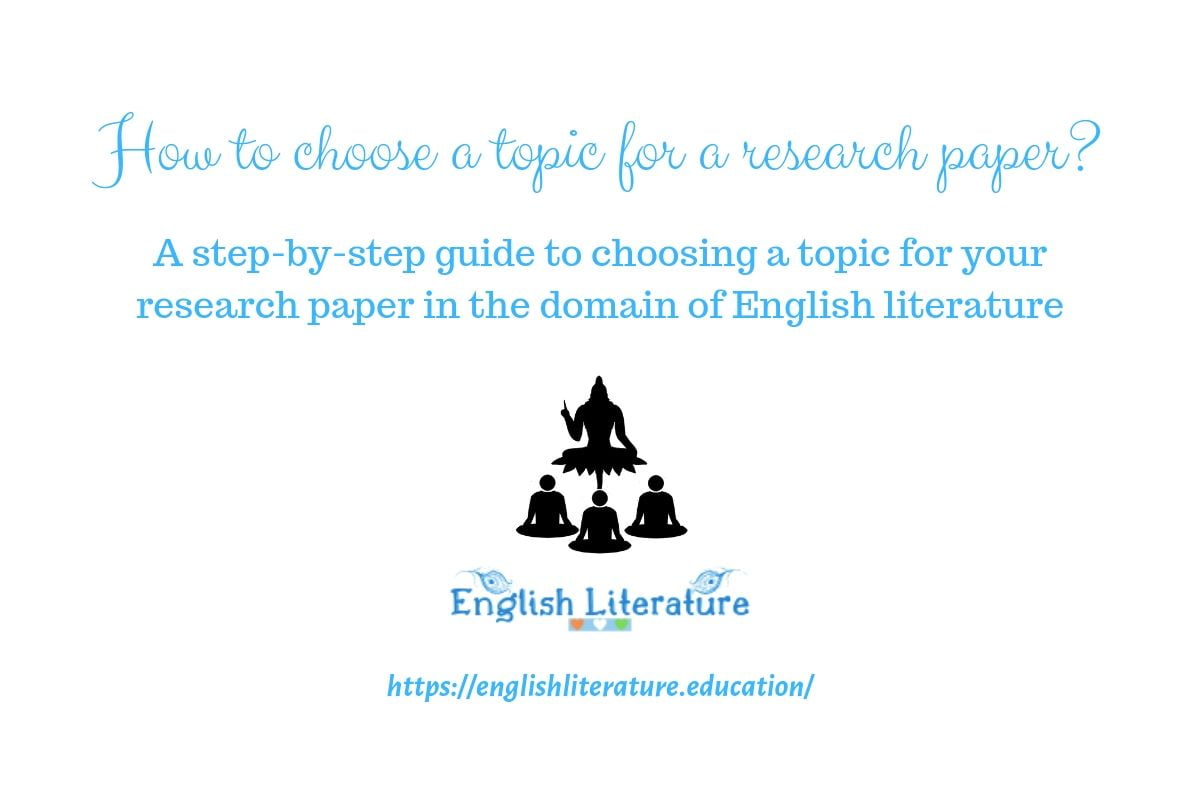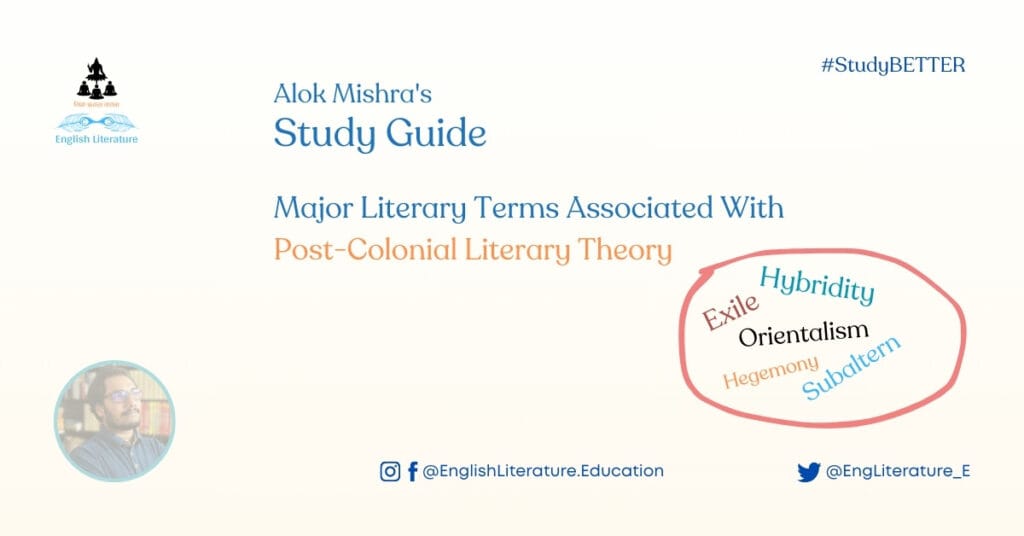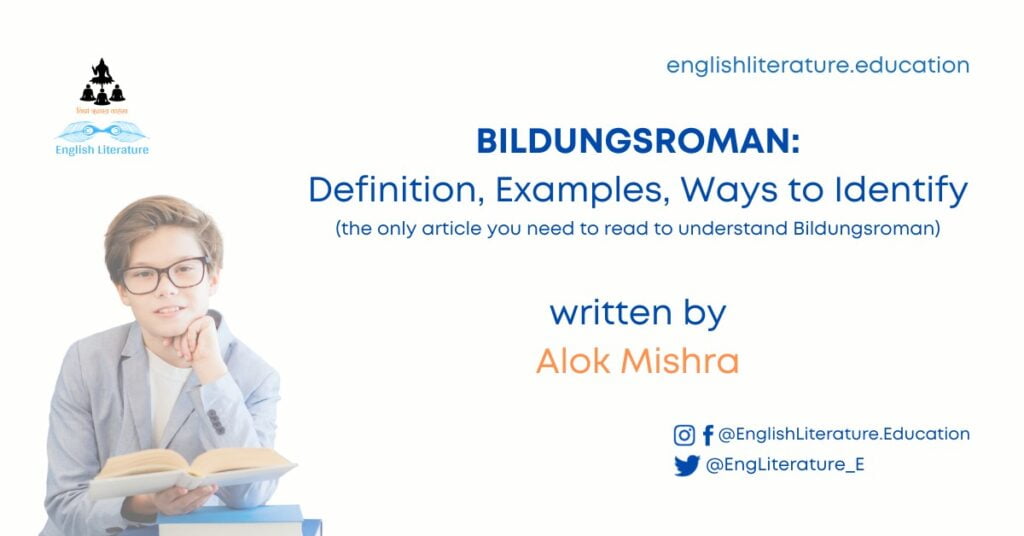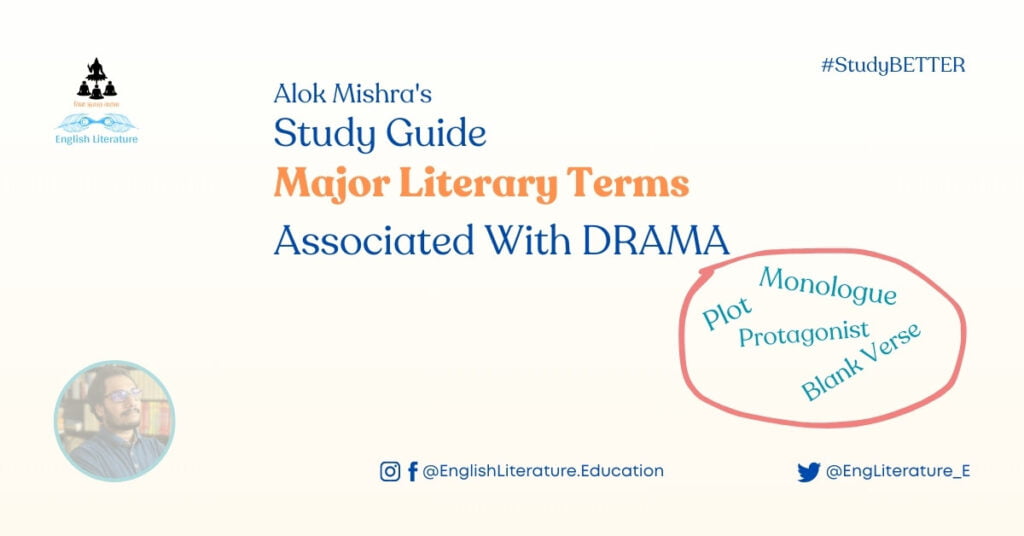How to choose the topic for your research paper – English Literature
Introduction:
Picking the topic for a research paper is the most important step and it defines the whole idea of your work, the methods that you might need to use to prove your proposition and also the level of effort that you might need to put into the work at hand. In short, the topic of a research article is the proposition or the central argument that you have to make. The entire paper posits itself around this central idea. The topic (or the title) of a research article is generally the glimpse of your conclusion. Please keep in mind that we are going to discuss the approach to choose the most suitable topic of a research paper in the domain of English literature. We will go step by step and reach the final step where we will have a sample topic with us. So, here we go!
Step 1: Clearly define a domain of your expertise in English literature :
Irrespective of what your professional or academic stature is, you must have an area of expertise in English literature and that’s only one. If you want to tell the same story in different words – there must be an area in English literature that you are the most interested in – it may be Victorian literature, Shakespeare, Wordsworth, Elizabethan Drama and so on and so forth… what is yours? You will have to be frank and honest with yourself. So, this is where we begin – by defining the area of expertise or the area of interest. For example, Lakshman is interested in the 20th-century English literature and he has expertise in this domain as well. So, Lakshman’s domain is defined – the early 20th-century English literature and it is vast, wide and mammoth if I may say. What will Lakshman do now? To know it, we move to the next step.
Step 2: Break down your ‘area of expertise or interest’ into different pieces:
This has to be done. This has to be done because you cannot write a research article or even your thesis on a mere area of interest unless you have an ‘objective’ attached to it. By objective, I mean unless you further define what speciality or significant thing you want to highlight in your area of interest (and expertise), you will not have a valid topic for your research. So, you need to further break down your area of expertise into logical and valid as well as interesting pieces. Lakshman has expertise in early 20th-century English literature and he has a deep interest in it. Can he write a research paper on ‘early 20th-century literature’? Not until he clearly defines ‘what’ is he writing about in his area of expertise. So, Lakshman did the following:
Area of interest & expertise – Early 20th-century English literature
Chief literary figures: T. S. Eliot, G. B. Shaw, Virginia Woolf, D. H. Lawrence, James Joyce, W. B. Yeats, E. M. Forster, Joseph Conrad, Graham Greene
Major literary trends: Experimentalism, Modernism, Realism, Pessimism, Stream of Consciousness, T. S. Eliot’s rise
Now, Lakshman chooses Virginia Woolf to further narrow down his area of expertise and reach one step close to finding his ideal research paper topic. Now, he looks for possibilities in Virginia Woolf:
Narrowed Subject from the area of expertise – Virginia Woolf
Possible Ideas: her novels, her style of writing, specialities popularly associated with her
Lakshman chooses specialities popularly associated with her and lists the following options:
- Stream of consciousness and Virginia Woolf
- Feminism and Virginia Woolf
- Powerful monologues in her novels
Now, Mr Lakshman chooses the third option and he will have to phrase his title carefully and only after being sure that he will find enough of primary and secondary sources to justify the title or his topic for the research paper. We will move to the next step, and the final as well, to see how to choose the appropriate title after reaching the narrowest point of your area of expertise.
Revision: Did you get the point? You have to break your idea down into different possible pieces and pick the further narrowed one to further narrow it down. Suppose someone chooses a literary personality as the area of expertise. For example, Mr Keshav chooses John Keats as his area of interest and expertise. How will he move ahead with this? He will map it wisely:
Area of expertise & interest: John Keats
Majorly known for – Poetry
Possible ideas associated with John Keats and his poetry:
Representation of Nature, Representation of Beauty, Poems reflecting the youthful and undying passion, Reflection of Greek Ideals and Mythology in his poems,
Now, Mr Keshav goes with the interesting looking (but his area of expertise) option – Greek Myth & John Keats’ Poetry. And he will have to phrase his final topic now, but he will do it only after making sure that he has enough primary and secondary sources to drive his proposition to a proper conclusion. So, should we move to the final step? Let’s move ahead!
Step 3: Do you have your sources ready? Then choose your topic now:
Now that you have a clear possibility on your desk and the narrowest idea ready to be phrased into the title of your research work, time to collect credible primary and secondary sources. Make sure that you only pick up ‘credible sources’ and not rubbish articles and useless internet websites. Once you are sure you have your materials ready to support your idea, it’s the time to give your idea a definite shape – write your topic down in clear words that should define (in brief – brevity is the soul of wit) your entire research paper. You will understand it clearly with two of our examples that are running parallel to this article.
Example 1: Mr Lakshman has collected materials to support the idea that Virginia Woolf’s novels exhibit exemplary monologues and those are powerful, expressive and beautifully written. So, he will have to think of a sharp and expressive title now. And he decides to call his topic – Telling it with Monologues – Soliloquies in the novels of Virginia Woolf. He thinks twice and thrice and finalises it. He thinks once more and writes the second option on his MacBook Air – Motivating the ‘Self’: Monologues and the Fiction of Virginia Woolf. Now, two titles, howsoever close to each other, can take the research to two different rooms in the same hotel. Mr Lakshman will decide which door to knock. 🙂
Example 2: Mr Keshav was just at a 20-feet distance from Mr Lakshman when these both were sitting in the library and messing their heads with volumes written by scholars and critics (who never should have thought about the bone-breaking pain that students will have to undergo). Mr Keshav came back home with confidence and 12 borrowed books from the library and sat to choose the final topic. After a while, he wrote – John Keats: The Greek Poet Lost in the 19th-century. Unlike Mr Lakshman, Keshav knew which room he had to go.
So, now that these two guys have their titles, why should our friends wait? Once you have the title of your paper ready, begin writing. You can read our guide to writing a quality research paper here: How to write a research article?
Make sure that you drive the idea in your title to its conclusion. All the best!
More guides on How to Subjects:





3 Comments. Leave new
Very informative and helpful.
Thank you.
Sir,
Really I found it a very beneficial for me as a perfect guide to help me choose my topic.
Thanks
Could you please suggest any research topic for indian English literature?